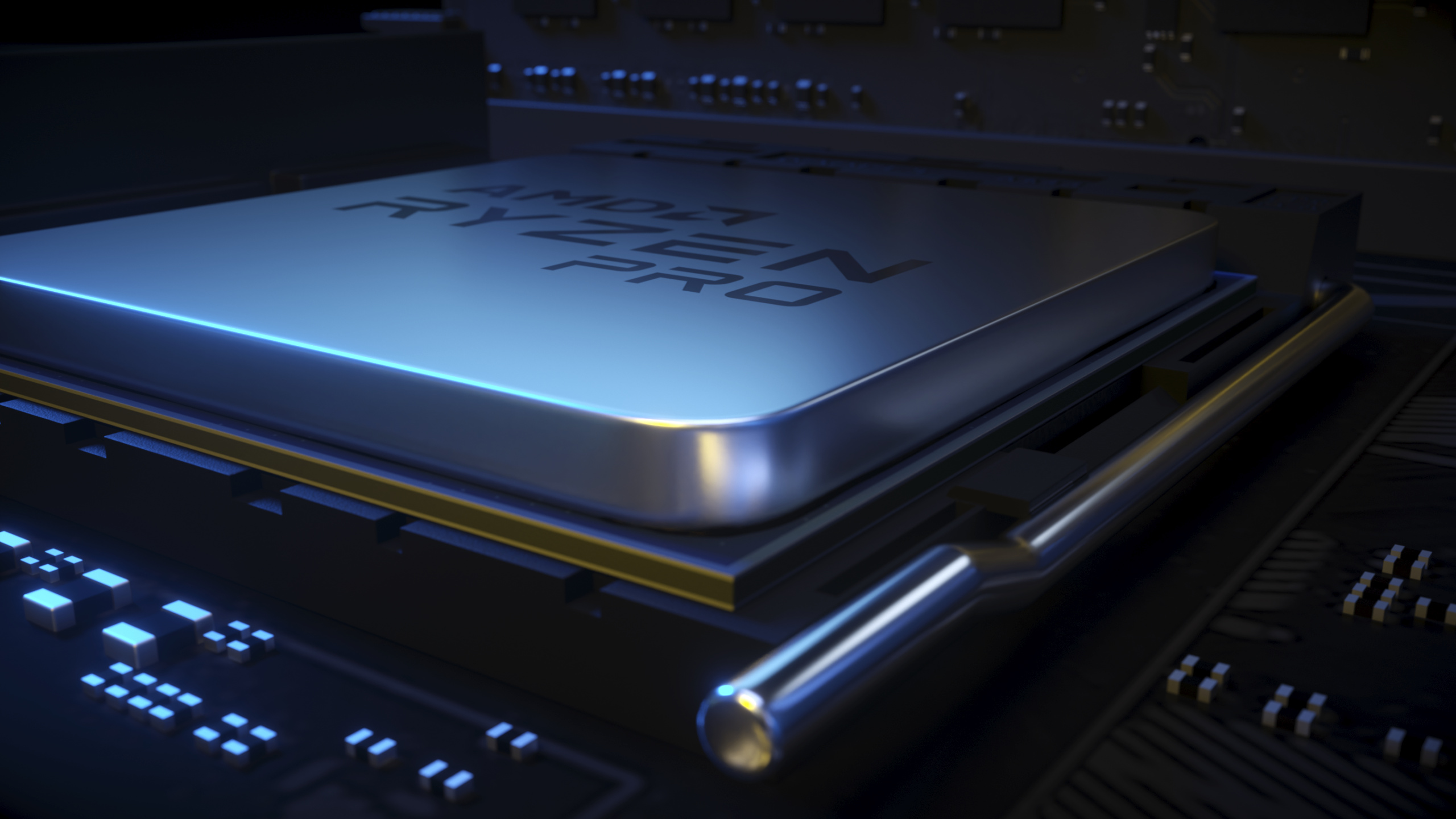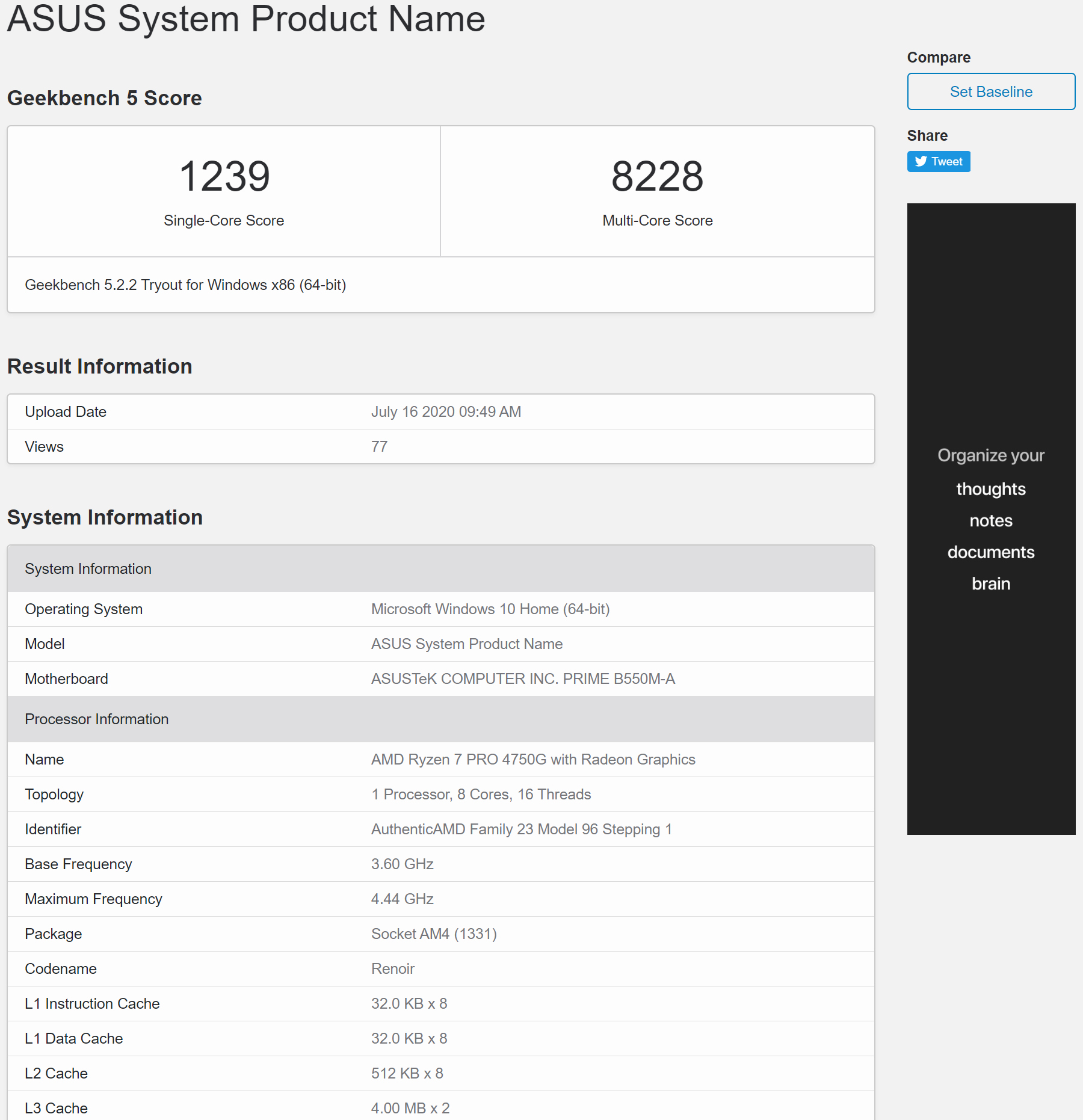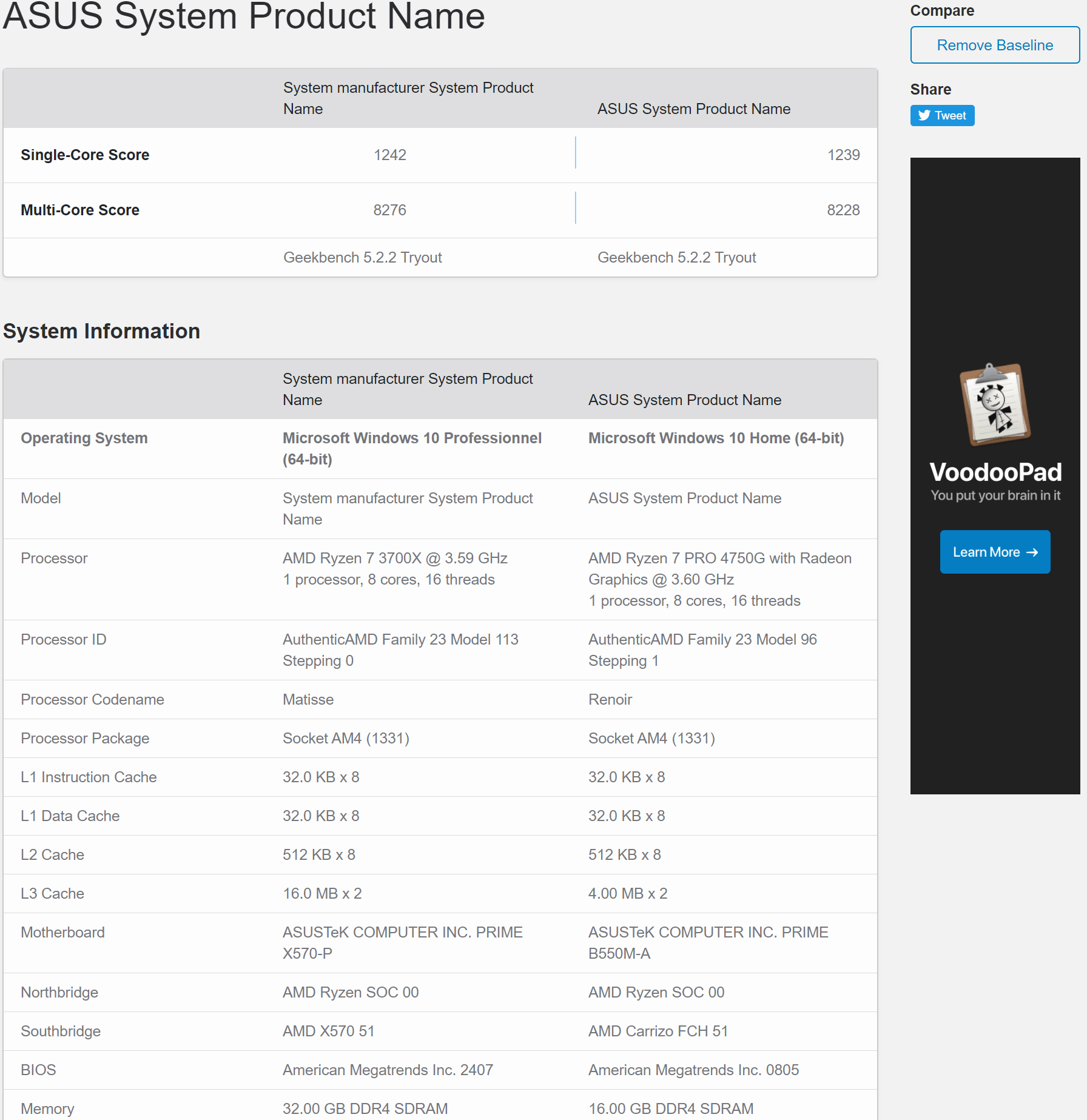Ryzen 7 Pro 4750G Demonstrates How Zen 2 Will Make AMD's APUs Relevant Again

There is still no word on when AMD's Ryzen 4000-series (codename Renoir) desktop APUs will launch, but the Ryzen 7 Pro 4750G is here to delight us in the meanwhile. Someone has put the octa-core APU through its paces (via @TUM_APISAK) on Geekbench 5.
By now, it shouldn't be any surprise that Renoir will come wielding the Zen 2 microarchitecture. The 7nm APUs will retain the Vega iGPU, but Zen 2 alone is enough to put AMD's APUs on the radar again. While the previous generation of APUs maxed out at four cores, Renoir is pushing the limit to eight cores, and that's with simultaneous multithreading (SMT). This dangerous maneuver effectively creates some conflict between certain Renoir APUs with AMD's Ryzen 3000-series (codename Matisse) offerings.
The Ryzen 7 Pro 4750G checks in with eight cores and 16 threads, the same configuration that's used inside the Ryzen 7 3700X and Ryzen 7 3800X/XT. Naturally, the clock speeds vary between the four chips since they adhere to different thermal limits. The Ryzen 7 3700X, which has a 65W TDP (thermal design power) rating, would be the apples-to-apples comparison to the Ryzen 7 Pro 4750G.
| Model | Cores / Threads | Base / Boost Clock (GHz) | L2 / L3 Cache (MB) | Compute Units | Graphics Frequency (MHz) | TDP (W) |
|---|---|---|---|---|---|---|
| Ryzen 7 3800XT | 8 / 16 | 3.9 / 4.7 | 4 / 32 | N/A | N/A | 105 |
| Ryzen 7 3800X | 8 / 16 | 3.9 / 4.5 | 4 / 32 | N/A | N/A | 105 |
| Ryzen 7 3700X | 8 / 16 | 3.6 / 4.4 | 4 / 32 | N/A | N/A | 65 |
| Ryzen 7 Pro 4750G* | 8 / 16 | 3.6 / 4.4 | 4 / 8 | 8 | 2,100 | 65 |
*Specifications are unconfirmed.
A few days earlier, the Ryzen 7 Pro 4750G seemingly appeared to be on the same level as the Ryzen 7 3800XT. However, the APU's performance was likely a fluke with that specific benchmark. Today's Geekbench 5 benchmarks prove that the Ryzen 7 Pro 4750G's performance closer to that of the Ryzen 7 3700X. This is more credible since both processors share almost identical specifications.
AMD hasn't launched desktop Renoir yet so the final specifications for the Ryzen 7 Pro 4750G are still a bit blurry. Thus far, the octa-core APU has been rumored to operate with a 3.6 GHz base clock and 4.4 GHz boost clock, the same clock speeds as the Ryzen 7 3700X. Due to the two processors' distinct compositions, the Ryzen 7 3700X has four times as much L3 cache as the Ryzen 7 Pro 4750G. Of course, the latter comes with an iGPU and the first doesn't.


The Ryzen 7 Pro 4750G scored 1,239 points in the single-core test and 8,288 points in the multi-core test. The Ryzen 7 3700X scored 1,242 points and 8,276 points in the same tests. The difference between the results is less than 1% so it's safe to assume that the Ryzen 7 Pro 4750G and Ryzen 7 3700X perform the same, at least in Geekbench 5. By all means, only a thorough evaluation can really decide for us, and that won't be possible until desktop Renoir is out.
Get Tom's Hardware's best news and in-depth reviews, straight to your inbox.
Dutch retailer Centralpoint listed the Ryzen 7 Pro 4750G for $370. As always, we should take the pricing with a bit of salt for various reasons. Hardware is more expensive outside the U.S. and retailers often use placeholders for pricing. The Ryzen 7 4700G is the non-Pro Variant of the Ryzen 7 Pro 4750G and should arrive with similar performance albeit a cheaper price tag.
The Ryzen 7 3700X debuted with a $329 MSRP, but the processor is selling for as low as $273. We expect the Ryzen 7 4700G to launch with a bit higher price tag because of Vega iGPU. For now, the Ryzen 7 4700G appears to be a Ryzen 7 3700X with integrated graphics. Let's not forget that the Ryzen 7 3700X has quadruple the L3 cache, which will ultimately help it beat the APU in workloads where cache matters.

Zhiye Liu is a news editor, memory reviewer, and SSD tester at Tom’s Hardware. Although he loves everything that’s hardware, he has a soft spot for CPUs, GPUs, and RAM.